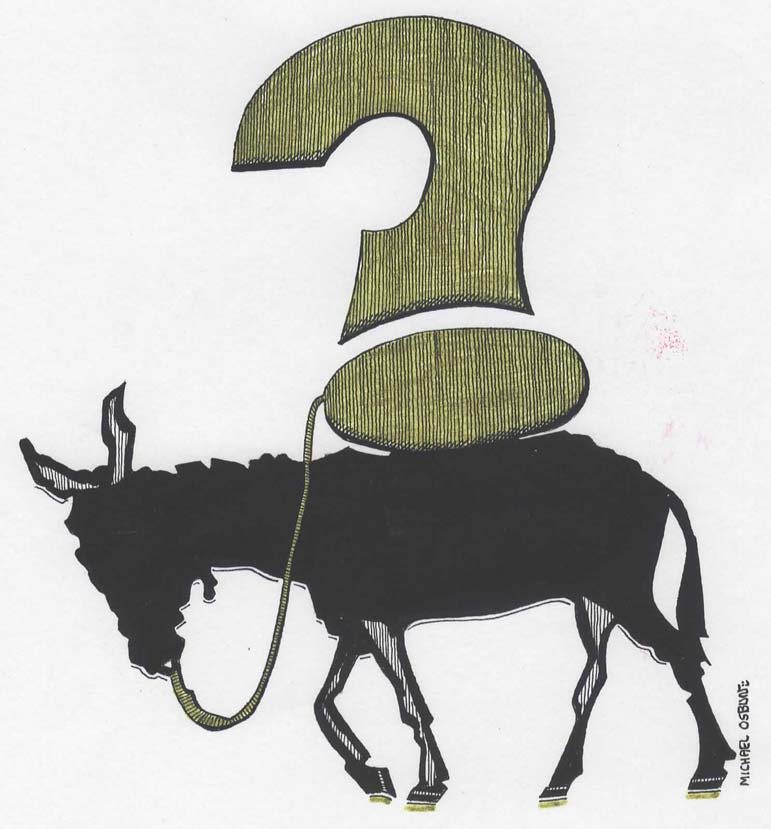
Unless lightning strikes, the nominee will be one of those five. Let's face it, top-tier status is self-reinforcing. They have the coverage, the money and the confidence; the rest increasingly look like bit players.
The adage that a presidential race is a "marathon, not a sprint" isn't all that helpful. This race is more akin to an obstacle course. Every candidate will have bad moments, weaknesses, challenges and stumbles - e.g., Biden's first debate, Buttigieg's response to a police shooting, Warren's DNA testing.
The winning candidate is the one with not just tenacity to power through the tough moments (as exemplified by Warren, who has doggedly stuck to her policy production, rejection of big donors and endless patience for selfies and autographs) but the one who can, when needed, adjust course and fix problems.
Biden had a rough debate, but since then he's accepted the challenge of sharpening his message, raising the tempo of his appearances and showing a level of seriousness on issues (e.g., his foreign policy speech) that not all his opponents possess.
Prior to the first debate, Harris' campaign was listing. She lacked focus. She not only used the debate to go on offense but has fully embraced her persona as a prosecutor and the need to share more of her personal story. Her recent TV appearances display how sharper her message is and how much more comfortable she is talking about her background as a prosecutor.
Buttigieg is trying to weather the storm in the wake of the police shooting of an unarmed black man in his city. He's shown contrition and assumed responsibility. He's rolled out an impressive Frederick Douglass plan to counter systemic racism. It's impossible to know at this stage whether that will be enough, but he is doing what smart and effective politicians - and, more important, leaders - do when challenged. They absorb criticism, adjust accordingly and keep their head in the game.
One reason Sanders is now struggling (and perhaps is the weakest of the top five) is because he emphatically refuses to adapt to new challenges. He's no longer new. With Warren in the race, he's not offering something entirely unique. He's not responding to voters' desire to know more about the candidate. "Mr. Sanders has been unwilling to regularly talk about his personal history of growing up poor in a Brooklyn neighborhood full of Holocaust survivors, and until recently he resisted letting his campaign poll voters in Iowa, the first nominating state," the New York Times reports. "He has largely defied his staff's urging that he go on the offensive against Joseph Biden, the Democratic front-runner. . . . But now, slipping in the polls and outraised by a handful of rivals, including a fellow progressive, Elizabeth Warren, Mr. Sanders is facing growing pressure from some of his allies, and within his own ranks, to adjust his strategy."
He doesn't want to share his biography the way Harris and Warren have done. He doesn't want to go after Biden, as Harris has done. And - just as critics joked that Rudy Giuliani's message in 2012 was "Noun. Verb. 9/11." - whatever the question, Sanders answers that Wall Street is crooked and the only way to address injustice is his democratic socialism.
Does he seem all that interested in gun violence or criminal justice reform? Not so much, and certainly not to the degree to which other candidates have developed full, well-rounded messages.
In short, he's acting like his Larry David portrayal: a stubborn, grumpy old guy. This is not merely a hindrance in winning the nomination; it's a warning sign about the candidate's leadership skills, his ability to consider new evidence and changed circumstances, and to respond to adversity.
We are more than six months from the Iowa caucuses, but the most important predictor of success for the five top contenders may not be the poll numbers (which fluctuate) or money (at some point all you need is enough, not the most) but flexibility.
The candidate who shows the greatest capacity to adapt to new challenges is likely going to be the winner. And, come to think of it, that's a pretty good qualification for the presidency.
Sign up for the daily JWR update. It's free. Just click here.
(COMMENT, BELOW)


 Contact The Editor
Contact The Editor
 Articles By This Author
Articles By This Author